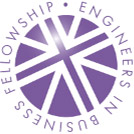Health Innovation Challenge – 2024
Back to Competitions | This is a new competition, exclusively for students from the Aston University College of Engineering and Physical Sciences, in particular students studying mechanical engineering, biomedical engineering, product design and computer science. It is designed to encourage students to be both innovative and enterprising, through developing creative ways of bringing more innovation and technology into the health sector. |
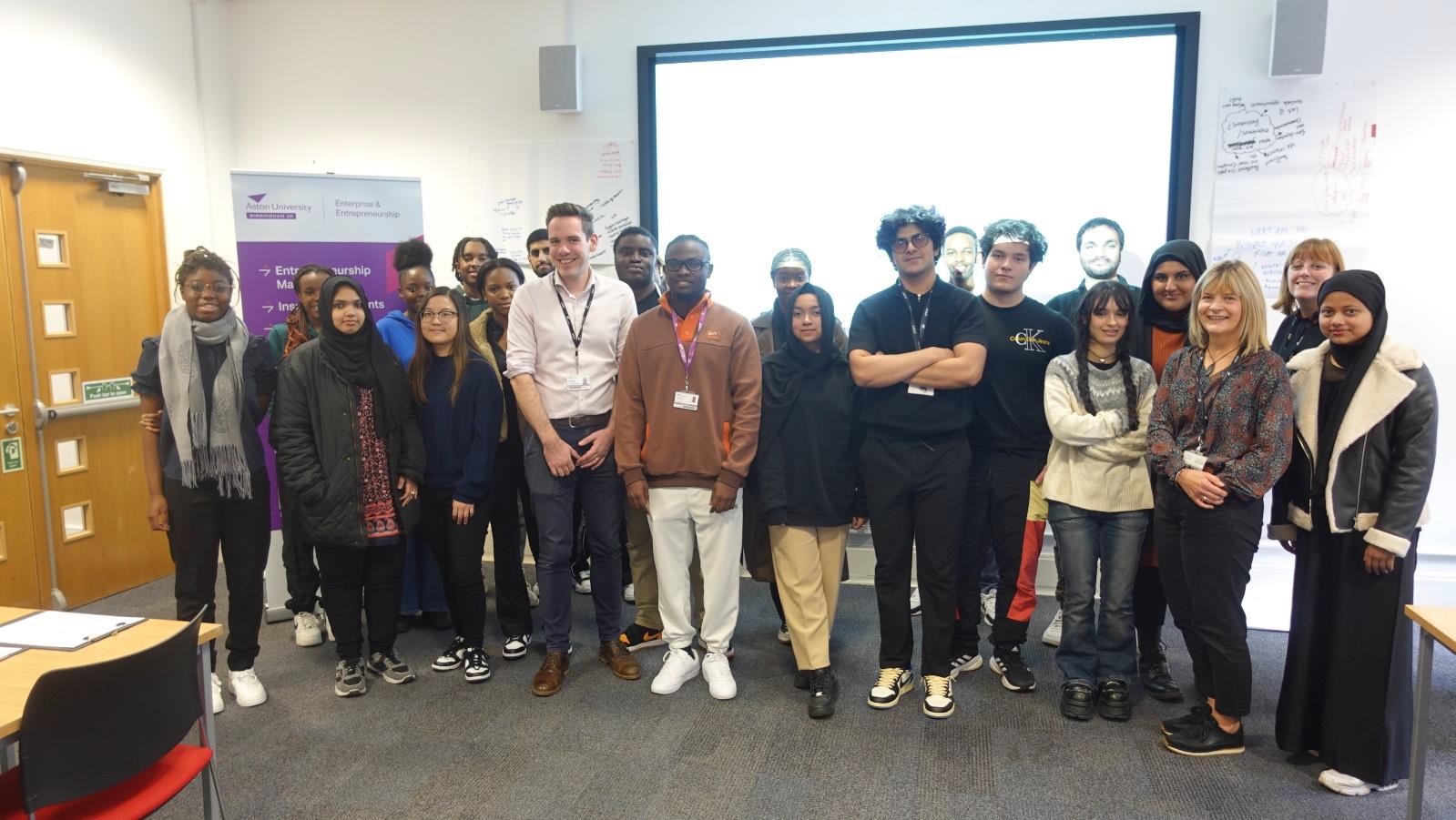
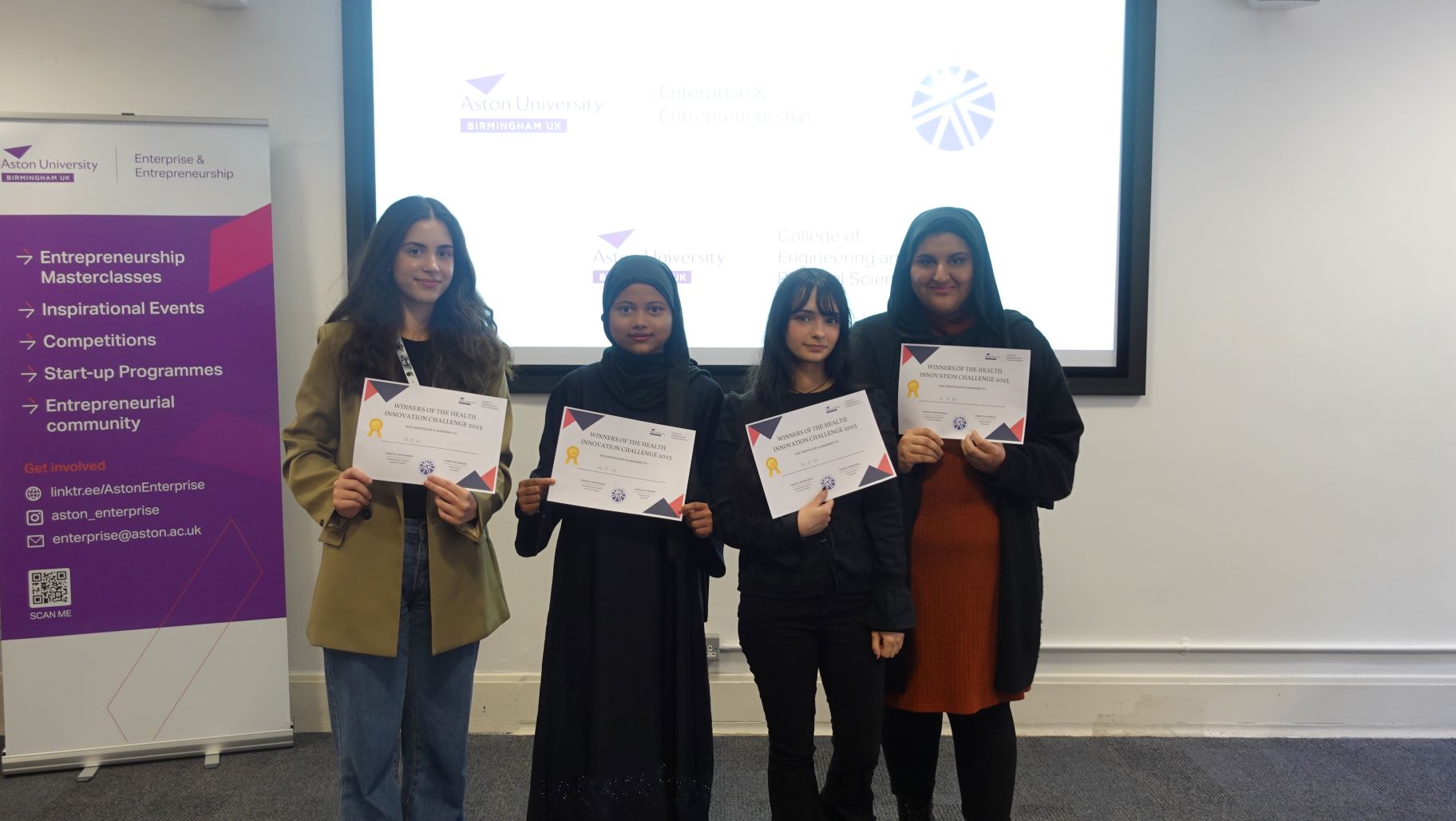
First place: Advanced First Aid
A team of four students created an Advanced First Aid (AFA) kit, which includes an EpiPen, pulse oximeter and a new design of a vitals machine. Within the vitals machine, there will be a section to measure blood pressure, a GPS to locate the emergency and a CPR voice over.
When an emergency occurs, the product is designed to be used by the first responder while on call with the 999 operator, helping to hopefully save lives. The kit will also help the operator make a better judgement of the situation and ascertain if an ambulance needs to be dispatched or not.
Students:
- Emiliana Demo – Foundation in Engineering (Logistics with supply chain pathway)
- Sadia Miah Begum – Biomedical Engineering
- Manahil Irshad – Mechanical Engineering
- Lucy Smith – Product Design & Technology
Prize awarded: £1,250
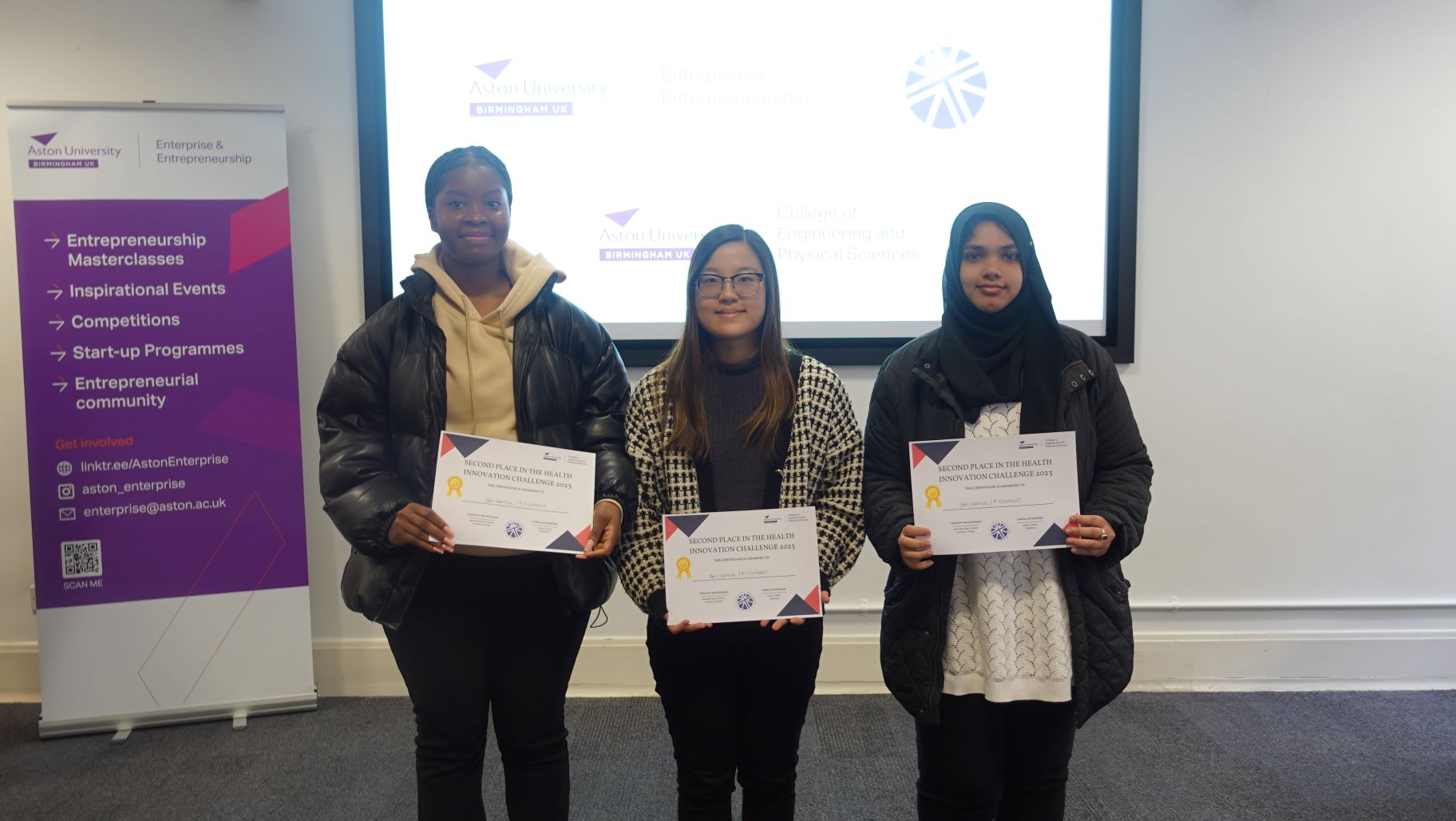
Second place: PillSmart
With about 3.3 million elderly people living alone and 1.6 million are not receiving care, a team of three students came up with an idea to help with the dispensing of medicine. The elderly population is expected to double by 2050 and healthcare professionals are alarmingly understaffed. PillSmart is revolutionary AI and IoT enabled medicine dispensing device. It features no-contact heart rate sensing through remote Photoplethysmography (rPPG) using a high-resolution camera that also allows real time stream to carers. This allows remote monitoring by family members and healthcare professionals. Our vision is to empower the elderly to be independent while they can, reduce workload on carers and ensure medication adherence.
Students:
- Tiffany Yu – Biomedical Engineering
- Ekgari Kasawala – Biomedical Engineering
- Shifa Ali Nazim Raza Sayyed – Computer Science
Prize awarded: £750
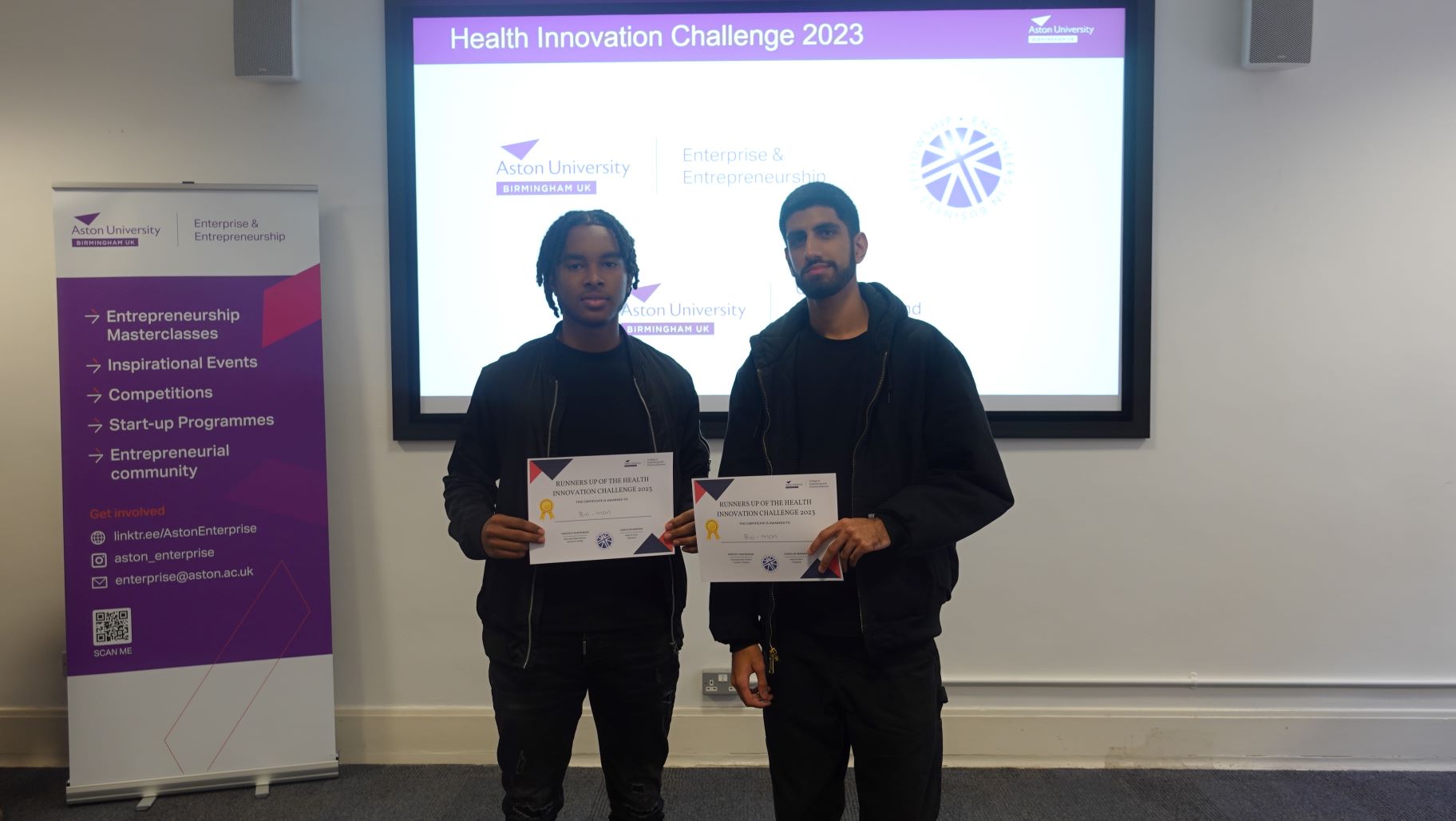
Third place: Bio Mon
The Bio Mon team’s idea was to create a watch and app which would have AI integration to help people specifically with heart disease to reduce the amount of heart attacks and associated impact from the disease. The team tackled this problem by adding components and materials such as a rubber straps that would contract to measure blood pressure, ECGs which measure pulse variability rate, a Snapdragon 1200 Wearable chip to measure heart rate and oxygen consumption, and an integrated app which will call an ambulance immediately if it recognises if someone is having a heart attack as well as and suggesting solutions to users if blood pressure is too high.
Students:
- Dominic Pollard-Odle – Electrical & Electronic Engineering
- Vivek Kaushal – Product Design
Prize awarded: £500
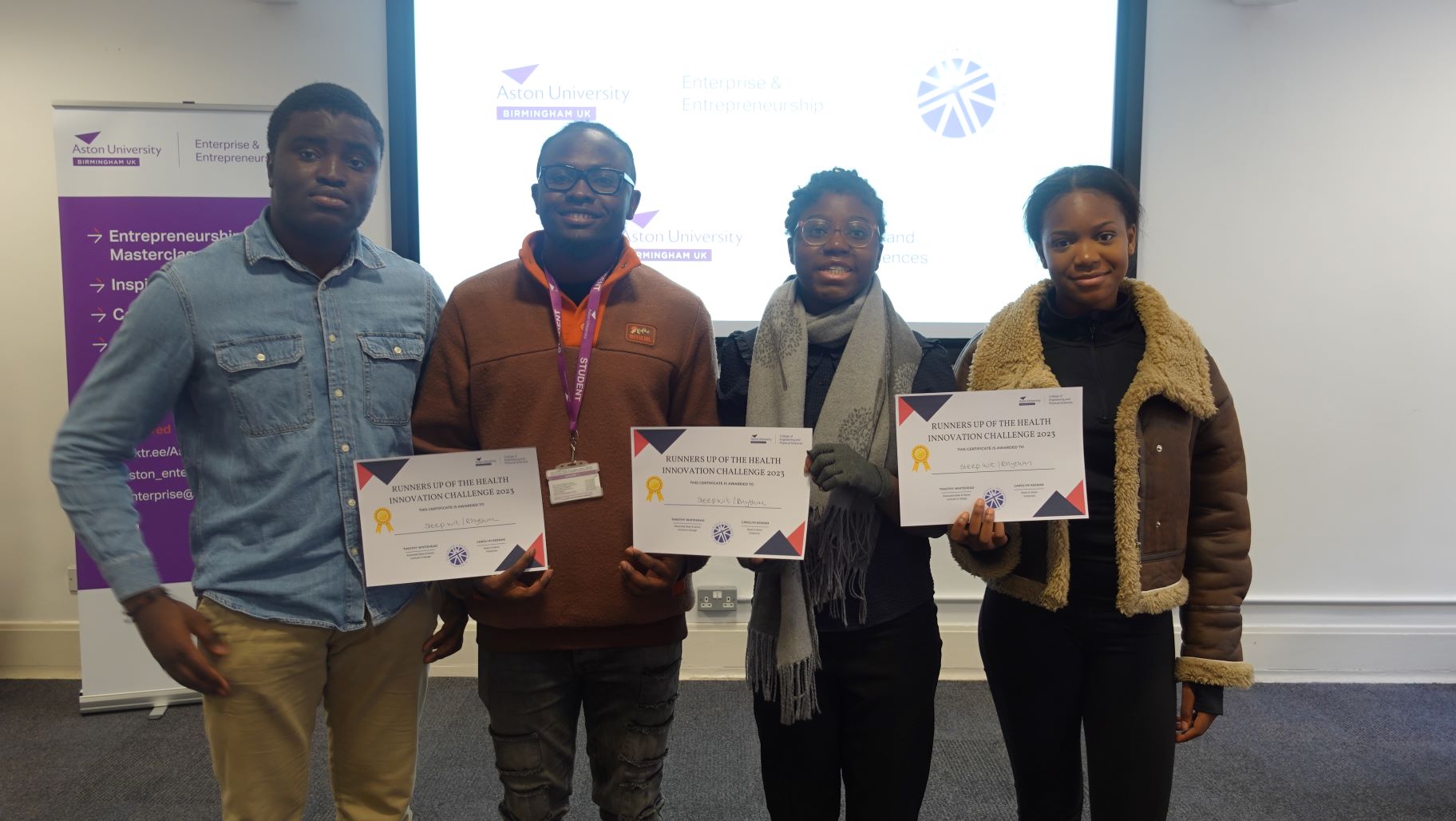
Fourth place: Rhythm
‘Rhythm’ is an app designed to educate women on the hormonal changes and give advice on what lifestyle choices (food, exercise, mindfulness) should be taken to fuel their body. It’s reported that on average a women’s menstrual hormones change on a weekly basis from the luteal stage to ovulation. These four students’ project highlighted these changes through our menstrual and sleep calendar and to get a better understanding of what is going on with bodies and provide tailored advice on how to support them.
Students:
- Hamid Mustapha – Cybersecurity
- Ighomena Odebala – Computer Science
- Sia Abu – Mathematics
- Shini Adebay – Computer Science
Prize awarded: £500
Positive feedback
The Health Innovation Challenge, funded by the Engineering in Business Fellowship, provided an excellent opportunity for the Aston Enterprise & Entrepreneurship department to widen its engagement with students and academic colleagues from the College of Engineering and Physical Sciences. We devised an interactive and practical week-long programme that enabled students to articulate their problem statement, ideate innovative ideas, understand how to commercialise their ideas, work in their newly formed interdisciplinary teams to develop their idea, learn how to create a compelling pitch deck and pitch their idea to a panel of expert judges. The judges commented on how impressed they were with the level of innovation and the quality of the final pitches. There are definitely ideas there that can be developed further with the help of the university.
Carolyn Keenan
Head of Aston Enterprise and Entrepreneurship
Aston University
